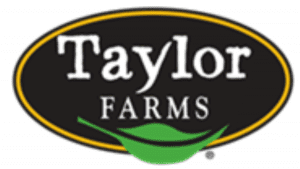Welcome to Blue Book!
Are you ready to join the thousands of companies who rely on Blue Book to drive smarter decisions? View our plans and get started today!
Still have questions? We’d love to show you what Blue Book can do for you. Drop us a line– we’ve been waiting for you.
A bankruptcy court hearing is then set to review the APA. The court will consider whether the fees are reasonable, are supported by creditors, and will serve the best interests of the estate. Once the court approves the bid procedures and stalking horse protections, the auction is scheduled. The bankruptcy judge sometimes conducts the auction, but not always. The debtor, usually in consultation with the creditors’ committee, selects the bidder with the highest or best offer. If no other bid is received, no auction is held and the stalking horse wins the bid. Final approval of the sale is granted by the bankruptcy judge at a confirmation hearing.
Amendola notes that having the full cooperation of all parties involved—debtor, buyer, creditors, and judge—makes for a smooth sale. “Everyone should be happy with a 363 sale; it should benefit the debtor, the buyer, and the creditors.”
Kinks in the Process
A recent Section 363 sale, concerning the sale of Wilcox, AZ-based EuroFresh Farms to NatureSweet, Ltd. in San Antonio, TX, went off without a hitch. EuroFresh filed for Chapter 11 in January and was sold at the end of March to the stalking horse bidder (NatureSweet) for $51.19 million.
But 363 sales are not always smooth. At the first hearing, the stalking horse’s APA may not be approved by the court if the judge believes certain provisions in the agreement will have a chilling effect on bidding. This was the case for Allens, Inc.; there were 40 objections filed. Among the objections were a too-short timeline and an excessive breakup fee of $5 million if the stalking horse bidder, Seneca Foods Corporation, was outbid. Creditors also argued that the $148 million price tag was too high.
The winning bid of $124.78 million went to Sager Creek Acquisition Corp., a private equity firm with ties to Sankaty Advisors LLC, a secondary lienholder and a unit of Bain Capital LLC. For its troubles, Seneca Foods walked away with a $3 million breakup fee.
When Pennsylvania-based Associated Wholesalers, Inc. filed for Chapter 11 in September 2014, it received a commitment from stalking horse C&S Wholesale Grocers for debtor-in-possession financing through the 363 sale. But the agreement drew fire from an ad hoc creditors’ committee comprised of suppliers such as Coca-Cola Company. In their petition to the court, creditors claimed the agreement did not account for nearly $3.5 million in debt incurred in the 20 days leading up to AWI’s Chapter 11 filing. And, as in the Allens case, SuperValu, a prospective bidder, objected to the bid procedure and the $5 million breakup fee.
Even after an auction is held, court approval of the sale is not guaranteed. The court can exercise judgment as to what is in the best interest of the estate and reopen bidding for a variety of reasons. In addition, the creditors’ committee may not agree the highest bidder represents the best offer. The judge may also determine the sale favors one class of creditor over another, there is no need for a speedy resolution, or no business justification for a 363. If a 363 sale is not approved by the court, the debtor must continue through the Chapter 11 process.








